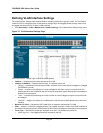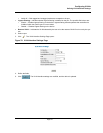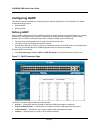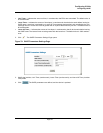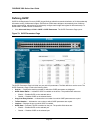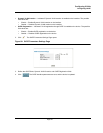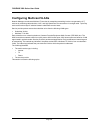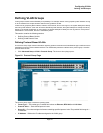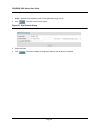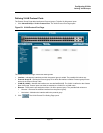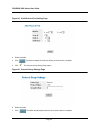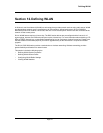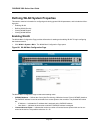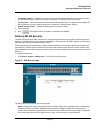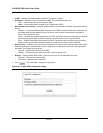
Configuring VLANs
Defining VLAN Groups
Page 137
Defining VLAN Groups
VLAN groups increase network flexability and portability. For example, network users grouped by MAC address can log
on to the network from multiple locations without moving between VLANs.
VLANs can be grouped by MAC address, Subnets, and Protocols. Once a user logs on, the system attempts to classify
the user by MAC address. If the user cannot be classified by MAC address, the system attempts to classify the user by
Subnet. If the subnet classification is unsuccessful, the system attempts to classify the user by protocol. If the protocol
classification is unsuccessful, the user is classified by PVID.
This section contains the following sections:
• Defining Protocol Based VLANs
• Defining VLAN Protocol Ports
Defining Protocol Based VLANs
The Protocol Group Page contains information regarding protocol names and the VLAN Ethernet type. Interfaces can be
classified as a specific protocol based interface. The classification places the interface into a protocol group. To define
protocol based VLANs:
1. Click Advanced Setup > VLAN > Protocol Group. The Protocol Group Page opens:
Figure 81: Protocol Group Page
The Protocol Group Page contains the following fields:
• Frame Type — The packet type. Possible field values are Ethernet, RFC1042, and LLC Other.
• Protocol Value — User-defined protocol name.
• Group ID — ID number assigned to frames containing specified protocol value The possible field range is 1 -
2147483647.
• IP Address – Defines the IP address assigned to the VLAN group.




